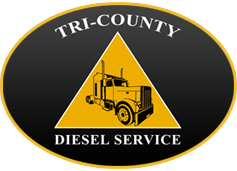Keeping your semi-truck in peak condition is crucial for ensuring smooth operations, preventing breakdowns, and extending the lifespan of your vehicle. Regular semi-truck maintenance is more than just an industry standard—it’s a key practice that keeps your fleet safe and efficient on the road. Here are some essential semi-truck maintenance tips every semi-truck owner or fleet manager should prioritize.
1. Prioritize Regular Oil Changes and Fluid Checks
One of the most fundamental aspects of semi-truck maintenance is ensuring that all fluids are topped off and in good condition. Regular oil changes and fluid checks are critical for proper lubrication, preventing overheating, and maintaining engine health. Be sure to check the following fluids as part of your semi-truck maintenance routine:
Engine Oil: Keeps the engine components lubricated and running smoothly.
Transmission Fluid: Ensures proper gear shifts and smooth driving.
Coolant: Prevents the engine from overheating during long hauls.
Ignoring these simple tasks as part of your semi-truck maintenance can lead to engine wear, overheating, and decreased fuel efficiency.
2. Perform Routine Brake Inspections
Semi-trucks carry heavy loads and need a reliable braking system to ensure safety on the road. Regular brake inspections should be a standard part of your semi-truck maintenance checklist. Look out for the following:
Brake Pads and Rotors: Ensure they are not worn down or damaged.
Air Brakes: Check for leaks and ensure they are functioning correctly.
ABS System: Test to confirm the anti-lock braking system is operating as expected.
Well-maintained brakes are essential for preventing accidents and ensuring that your truck can come to a stop safely under any conditions. Make brake checks a regular part of your semi-truck maintenance routine.
3. Inspect Tires and Alignments Regularly
Tires are the primary point of contact between your semi-truck and the road. Regular tire inspections and wheel alignments help prevent blowouts and improve fuel efficiency. Include these in your semi-truck maintenance checks:
Tire Tread Depth: Make sure your tires have adequate tread to handle various road conditions.
Proper Inflation: Keep tires inflated to the recommended levels to reduce uneven wear.
Wheel Alignments: Regular alignments prevent steering issues and prolong tire life.
Routine tire care is a crucial part of semi-truck maintenance that ensures stability and optimal handling on the road.
4. Maintain the Suspension and Steering Systems
The suspension and steering systems bear the brunt of heavy loads and rough terrain. Regular inspections and repairs should be part of your semi-truck maintenance plan to keep these systems in top condition, reducing wear on other components. Key maintenance tasks include:
Checking for worn-out suspension parts like shocks and struts.
Inspecting the steering system for any looseness or unusual play.
Replacing or repairing damaged components promptly.
Proper suspension and steering semi-truck maintenance ensure a smooth ride and improved control.
5. Don’t Neglect Electrical System Diagnostics
Modern semi-trucks rely on complex electrical systems for various functions, from engine diagnostics to lighting. Regular electrical system checks can help you identify issues before they lead to more significant problems. Include these checks in your semi-truck maintenance plan:
Battery Health: Make sure the battery is charged and corrosion-free.
Lighting Systems: Check all lights to ensure visibility and compliance.
Wiring and Connections: Look for any frayed wires or loose connections.
Keeping your electrical systems in good condition is a vital part of overall semi-truck maintenance.
Final Thoughts on Semi-Truck Maintenance
Proactive semi-truck maintenance at Tri-County Diesel Svc is essential for ensuring the safety, efficiency, and longevity of your vehicle. By following these semi-truck maintenance tips, you can prevent unexpected breakdowns, improve fuel efficiency, and keep your rig in peak operating condition. Partnering with a reliable semi-truck maintenance provider can help you stay on top of your maintenance schedule and avoid costly repairs down the road.
Keep your semi-truck ready for the long haul by making semi-truck maintenance a priority at Tri-County Diesel Svc!

